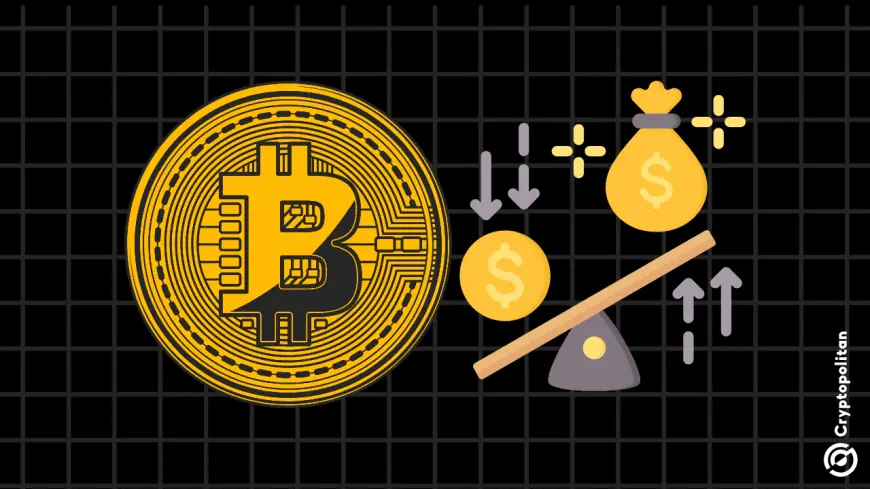Bitcoin’s leverage ratio reaches the highest level since late 2021, signals volatility ahead
Bitcoin (BTC) traded with conditions not seen since late 2021, reaching peak levels for its open interest to market cap ratio. Peak open interest creates risk of deleveraging and a drawdown.

Bitcoin (BTC) reached a price record following the US election, rallying on peak open interest. As BTC reached levels above $76,400, the high open interest sparked fears of another episode of deleveraging.
Open interest for Bitcoin (BTC) continued to climb, as the price reached new records. This November, the market also sees a record-high ratio of open interest to market capitalization. The indicator led to suggestions of an upcoming deleveraging event for BTC and a possible price correction. For the last time, the indicator reached a steep peak in late 2021, causing volatility for the BTC price.

The ratio itself does not predict the direction of BTC, but may lead to more volatility in combination with other external factors. In previous years, BTC also suffered from deeper drawdowns, not seen in the 2024 cycle. The asset also enters 2025 with expectations of an extended bull rally.
The US open hours lifted BTC above $76,000 for a retest of the all-time high, for now retaining the optimistic attitude. The Bitcoin fear and greed index remained at 75 points, indicating greed. The price of BTC follows a scenario where it rises in the final months of the year. The current peak price level sparks additional optimism and is seen as the basis for an even bigger rally.
There is no rule for the OI/market cap ratio, but the availability of leveraged positions may mean additional liquidation levels. Total futures open interest reached $46.77B, while the metric for top crypto exchanges excluding CME is at $24.12B. At this stage, long and short positions are balanced, with no specific levels to attack. Longs have a slight predominance above 50%.
Accruals of short positions sit at the $77,000 level, while longs are the most numerous around $75,400. BTC still holds its premium in Korean won prices, trading at the equivalent of $76,353.21. The market price remains unstable, dipping under the $76,000 level in minutes. Peak open interest may lead to growing volatility, especially at still-uncharted price levels.
Despite the peak available liquidity and fears of de-leveraging, the market remains relatively optimistic. For some, BTC was preparing for a drawdown, similar to previous cycles. More optimistic expectations see BTC continue its rally to a new price range. At this price level, the Bitcoin rainbow chart is still in the ‘buy’ range. The latest rally arrived after ongoing whale accumulation in the past week, as well as peak ETF inflows.
BTC shifted its trading profile on expectations of six-digit valuations
The previous peak of open interest happened at the end of July, just before the August 5 crash and drawdown. This time, the metric happens during a period of heightened optimism, with six-figure prices envisioned for the end of the year.
BTC is also retesting its previous highs in a highly exuberant market. The past few days saw consistent volumes above $100B, later falling toward $60B in the past 24 hours. BTC dominance is still at 59.9%, as most of the market’s attention is on the leading coin. While altcoins recovered, they are still lagging behind, with a few exceptions for top projects like ETH and SOL.
During the latest rally, BTC also saw an alternative mix of stablecoins and fiat pairs. USDT remains the most active trading pair, though slowing down to a turnover of 87% of its supply in a day.
The current rally also taps FDUSD, the stablecoin native to Binance, which makes up more than 22% of all trading activity. Direct trading against the US dollar expanded to more than 21%. This time, FDUSD activity came with a lowered market cap, as Binance diminished the supply.
In the past months, FDUSD was burned, shrinking the supply from over 3B tokens to 2.4B. The effect of FDUSD was due to the rapid token turnover, where the entire supply turned over more than three times in the past 24 hours. The high-speed trading led to suggestions of deliberately inflated volumes or wash trading.
What's Your Reaction?









































































































